Kateryna Aliinyk
Kateryna Aliinyk, was born in 1998 in Luhansk, Ukraine. In 2016, moved to Kyiv, where she entered the National Academy of Fine Arts and Architecture. In 2021 received a master's degree in painting. In 2020, she took a contemporary art course at KAMA (Kyiv Academy of Media Art) and completed a study program “Positions of the Artist” within the contemporary art course by Method Fund. Her main mediums are painting and text. She works mostly with subjects of war and occupation of Donbas through images of nature and non-anthropocentric optics.
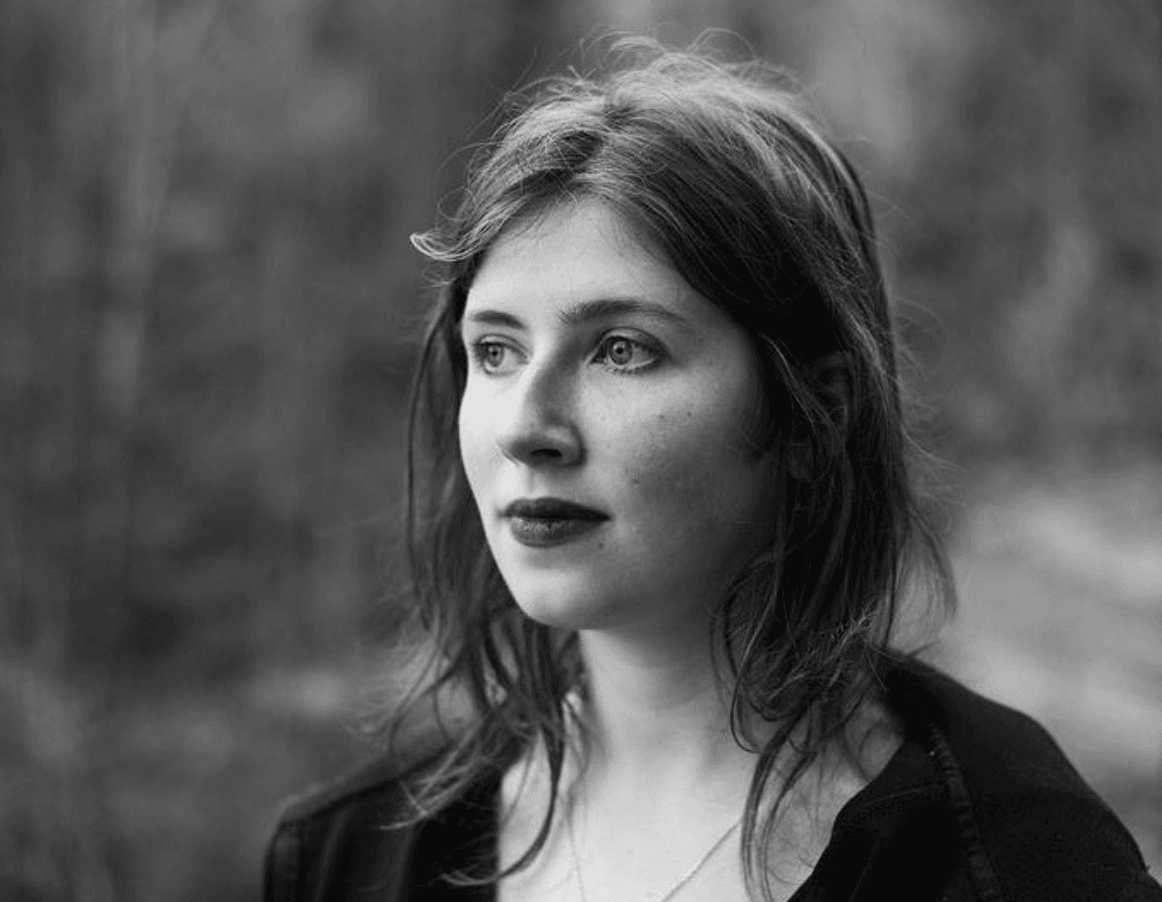
Neglected Part of the Garden, Ukrainian River
2022,
Acrylic on canvas
Kateryna Aliinyk’s two-year cycle of large acrylic paintings is dedicated to a closer look at the soil and landscape of Donbas. As the artist says: «At first glance, landscapes where no one ventures anymore can appear to undergo a «revival» because people have stopped visiting. But my main point is that even if a landscape does not seem to retain traces of tragedy for long, a closer look usually reveals its presence in the end. Artillery warfare, landmines, and bloodshed change the soil significantly over time. Liquids used in war seep into the ground. Even in agricultural areas, land mines, wreckage from rockets, and human remains forcibly coexist alongside crops. This overlap reminds us that every battlefield is just a field in the first place and Ukrainians still try their best to preserve the original purpose of this land despite everything. But we all worry whether the harvest is edible. Or have we just lost our appetite? Are the traces on the ground caused by agricultural or war vehicles? There are many other questions we must think about on a daily basis, constantly expecting new dangers.»
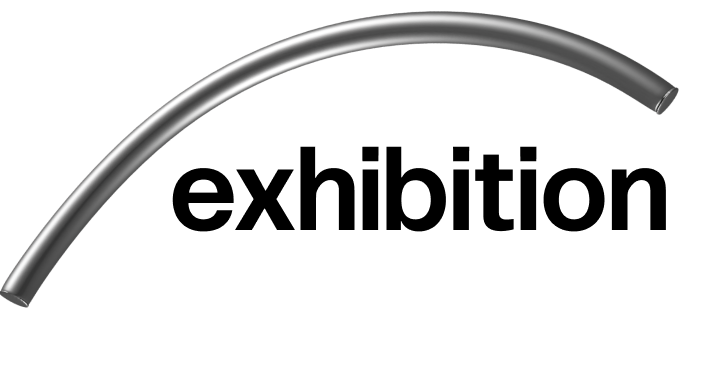
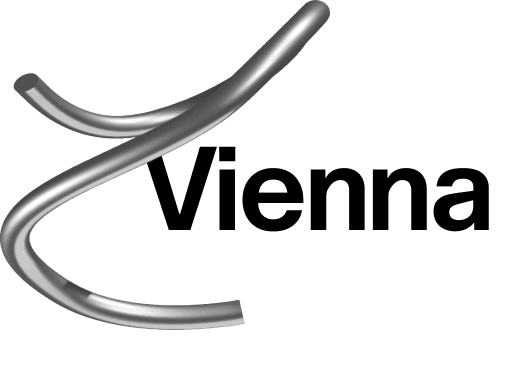
Augarten Contemporary, hoast, IG Architektur, Laurenz, Neuer Kunstverein Wien, Never At Home, Waffen Franz Kapfer, New Jörg, Ve.Sch
October 17–December 17
Main Exhibition
Curators: Serge Klymko, Hedwig Saxenhuber and Georg Schöllhammer
Medical and Political Fantasies About Luhansk
2021,
acrylic on paper
In her paintings of recent years, Kateryna Aliinyk consistently addresses the subject of the earth and the invisible processes taking place deep inside the soil. The artist suggests looking into the roots, insects, and other objects that usually hide under the surface. Aliinyk’s works capture two opposite states of the Ukrainian black earth that inevitably coexist during the active phase of Russia's invasive war: one of them is a source of fertility and serves to grow crops, and the other one turns those lands into a battlefield, dangerous to return to and resume human activities. Here, the brutal confrontation with tragedy intertwines with the ultimately peaceful and cyclical farm work. The artist’s hometown has been under Russian occupation for nine years, and most of the fighting is currently taking place in eastern and southern Ukraine, regions known for agriculture. The land and soil, along with the humans and non-humans who inhabit them, are losing their agency in this war as none of these fields were intended for warfare.

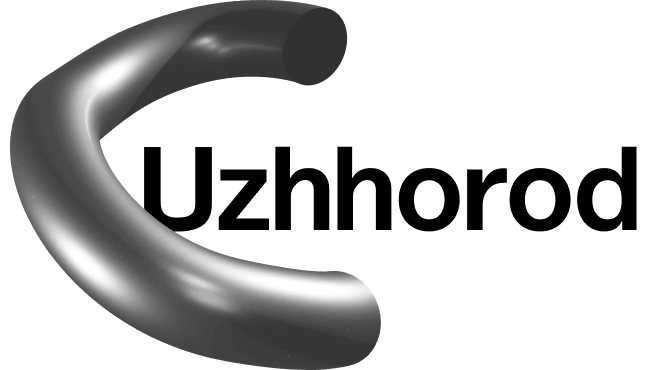
Sorry No Rooms Available
October 8–November 12
Where Are We Now, After All Those Endlessly Repeated Words?
Curated by Petro Ryaska, Daria Shevtsova
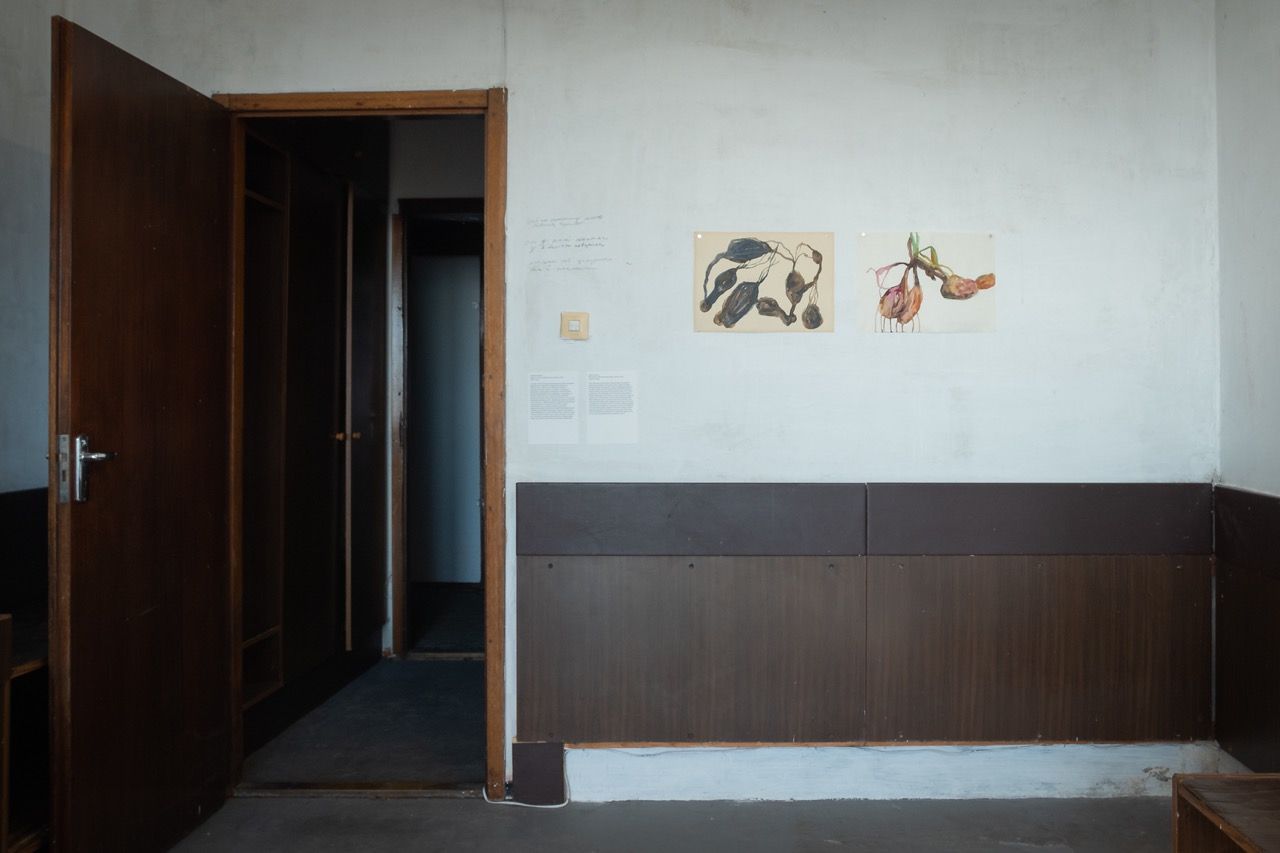

Everything Is OK Underground, There Is Always Something to Do
2022,
acrylic on canvas


Sorry No Rooms Available
October 8–November 12
Where Are We Now, After All Those Endlessly Repeated Words?
Curated by Petro Ryaska, Daria Shevtsova
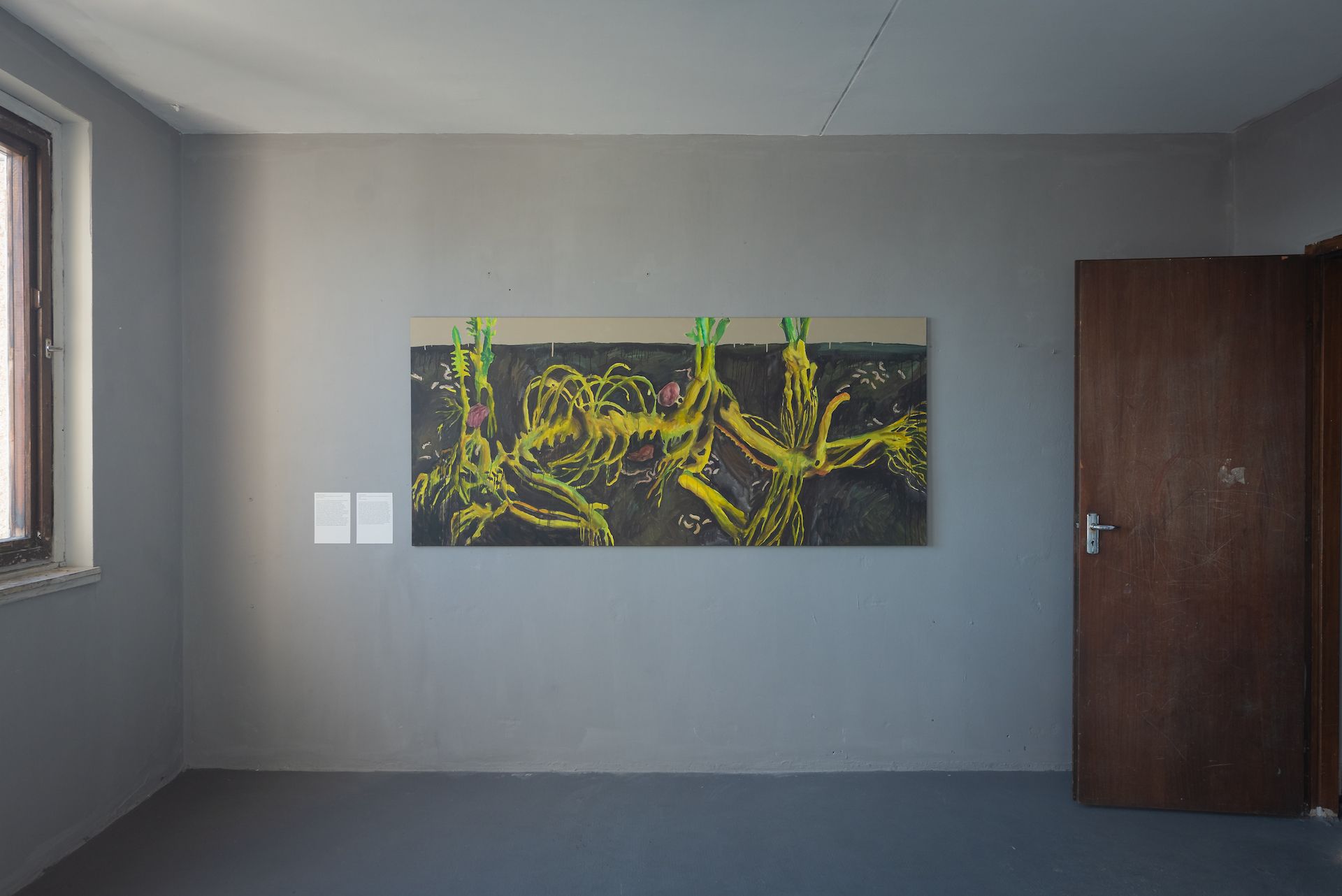
Power Outages
2023,
video (14:15)
Daniil Revkovskiy and Andrii Rachinskyi Performer: Waldemar Tatarczuk Participants: Daniil Revkovskiy, Andrii Rachinskyi, Waldemar Tatarczuk, Kateryna Aliinyk, Valentyna Petrova, Marta Hryniuk, Nick Thomas. A local girl, Katia, comes to the molfar, concerned about her life and the future of humanity. To answer these questions, the molfar heads off to a secret place for a ritual.

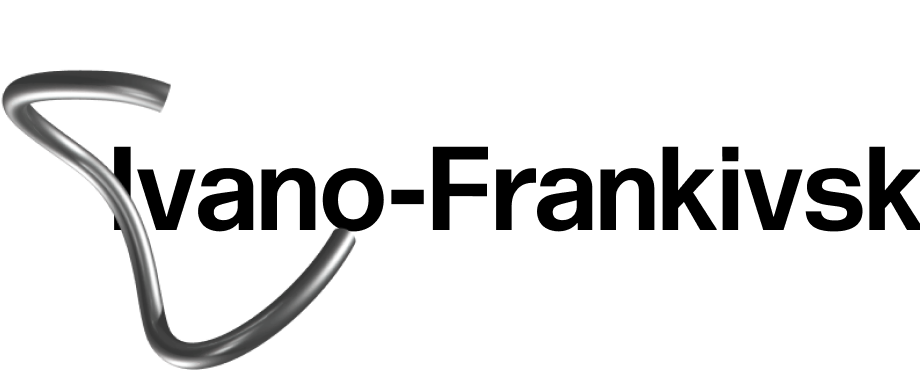
Asortymentna kimnata
October 7–October 30
On The Periphery Of War
Curated by Alona Karavai, Roman Khimei, Yarema Malashchuk, Anton Usanov

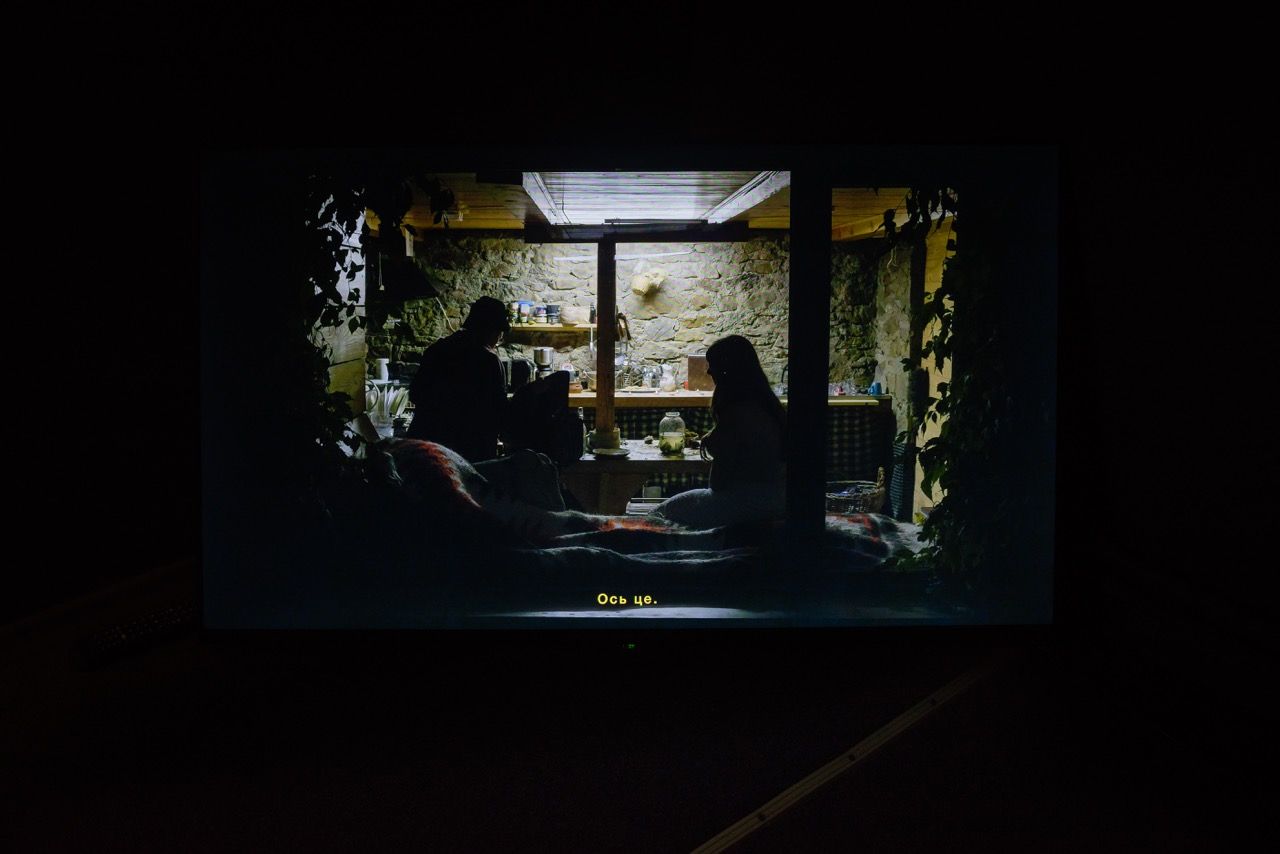
Commissioned by the Asortymentna Kimnata residency from the periphery
Who Else Eats Life with the Spoons?
2023,
acrylic on paper